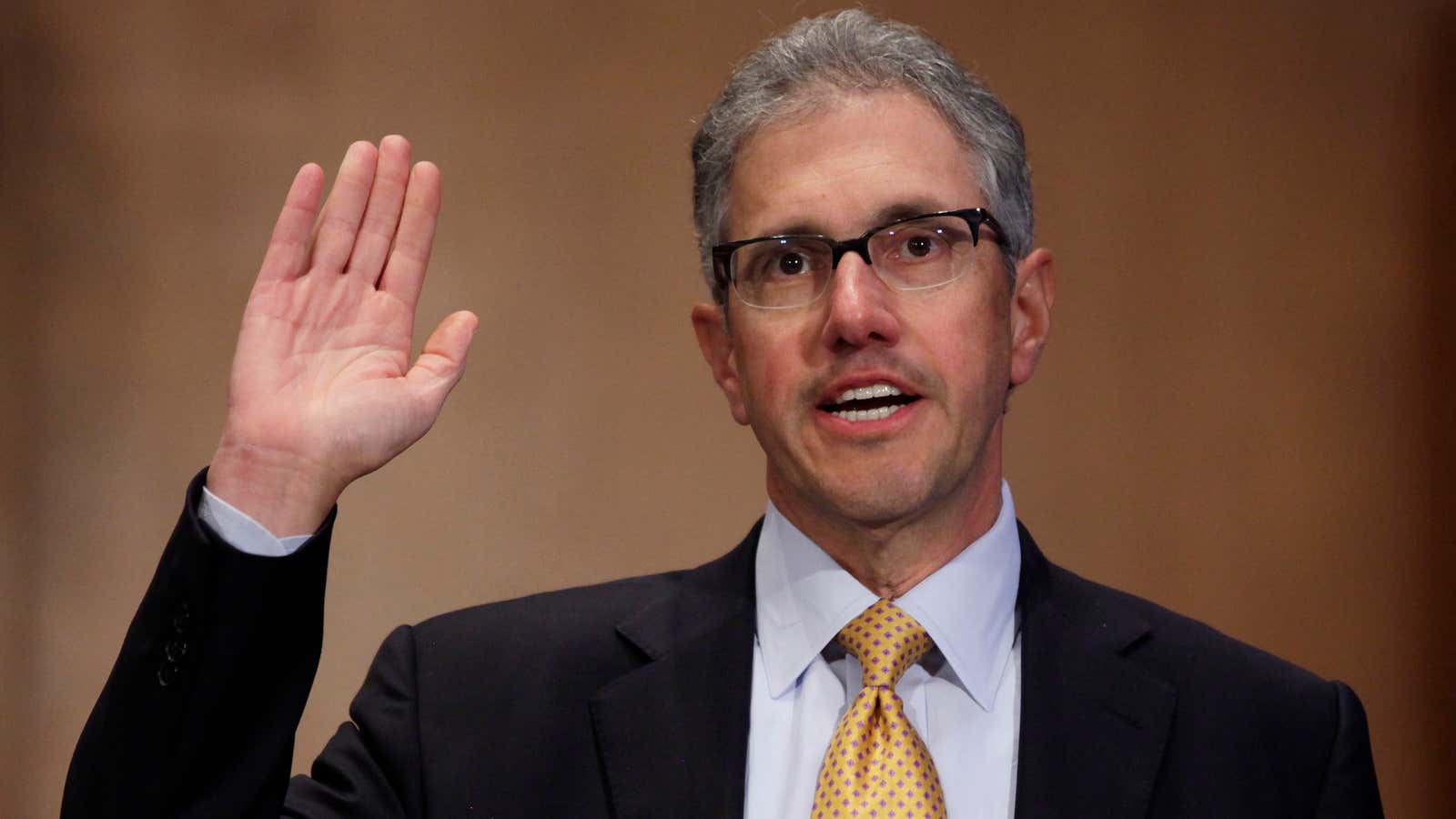JP Morgan’s former chief risk officer and head of regulatory affairs, Barry Zubrow, was curiously absent from the US Senate hearing on the bank’s $6.2 billion trading loss known as the “London Whale.” Zubrow was named in JP Morgan’s own report on the debacle as one of the main people responsible.
The Senate committee invited two risk officers to testify: Peter Weiland, former head of market risk in the chief investment office, who is no longer at the bank, and Ashley Bacon, the acting chief risk officer who was filling in for his boss, John Hogan, who is on sabbatical. So the panel felt that it didn’t need a third. But if the intent was to focus on executives who were closest to the derivatives trades, that’s all the more reason why politicians should have heard from Zubrow,who announced his retirement from JP Morgan in October 2012. (He could not be reached for comment.)
Zubrow was part of numerous email correspondences and meetings on the London Whale. For example, on April 10, 2012, former chief investment officer Ina Drew sent an email to five people, including Zubrow and CEO Jamie Dimon, revealing a larger number for the trading loss than the bank had previously figured. In another email, on April 5, 2012, Zubrow and Drew were told that Dimon was OK with the talking points to be shared with reporters covering the story.
The bank’s task force bluntly said Zubrow “bears significant responsibility for failure of the CIO Risk organization, including its infrastructure and personnel shortcomings, and inadequacies of its limits and controls on the Synthetic Credit portfolio.”
But Zubrow was spared from questioning by Sen. Carl Levin and others, causing some to wonder whether the politicians were using the hearing more as a push to strengthen the Volcker rule that bans proprietary trading. The rule is part of the Dodd-Frank financial regulation bill for which rules are still being drawn up.
One of the hardest hit at the hearing was former chief financial officer Doug Braunstein, who was frequently questioned about a conference call he had last April with investors in which he downplayed the risky trades. Braunstein said he spoke based on the information he had at that time, but Levin was unconvinced: “You thought that was a balanced presentation?” Sources say the bad information Braunstein was given for that call was provided by Drew and Zubrow.
